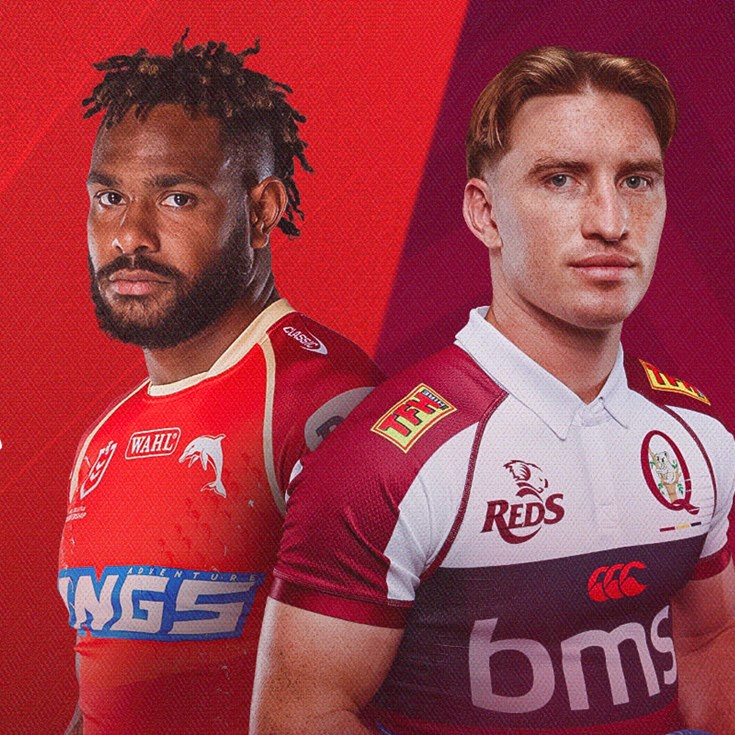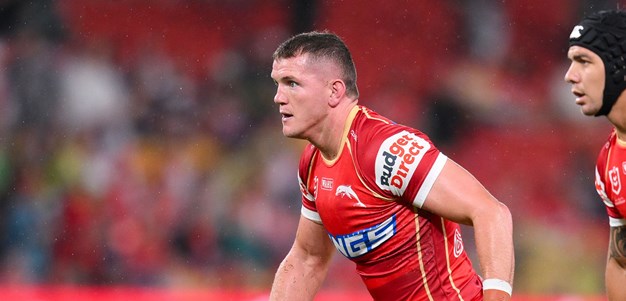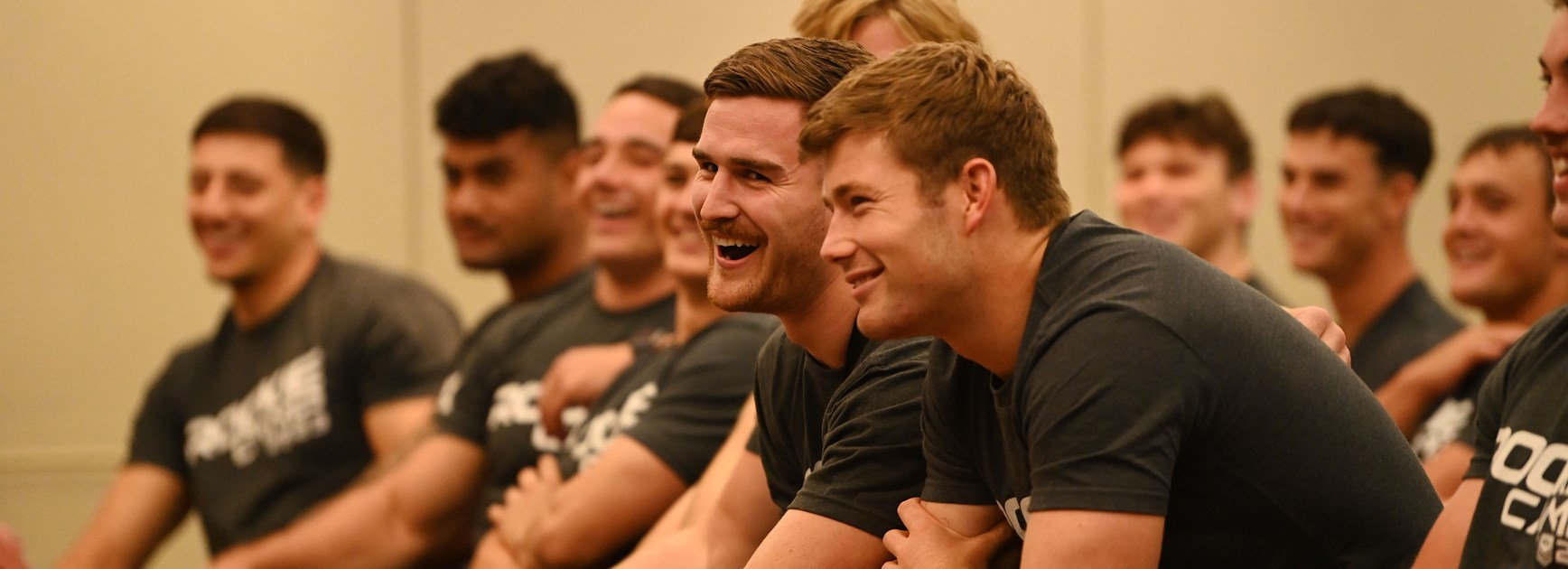
“We want players to be better people for being part of our game."
That’s the message behind this week's NRL Rookie Camp in Parramatta, where aspiring youngsters will be educated on the responsibilities and expectations that come with being a professional athlete.
Run by former and current NRL players, the camp aims to celebrate how far the rookies have come on their rugby league journey but also educate them on how to use their platform in a positive way at their clubs and in the community.
“The rookie camp celebrates the player’s first NRL contract first and foremost, whether that’s top 30 or development,” NRL Wellbeing and Education Manager Paul Heptonstall told NRL.com.
“It makes them aware of all the opportunities which are available to them, like increased finances, social media following and the ability to be a role model for the community and younger kids.
“The camp also prepares them for increased expectations, where they are judged at a higher standard to the rest of the community. With that popularity and the increased ability to have an influence on the community, it can also go the other way too.
“You can’t make a mistake in silence in rugby league.”
Among the past players passing on their experience will be Raiders legend Alan Tongue, former Warrior and Kiwi Clinton Toopi and Wests Tigers premiership player Dene Halatau, while Manly's Ethan Bullemor brings a current player's perspective to topics like respectful relationships, financial literacy, alcohol and the perils of social media.
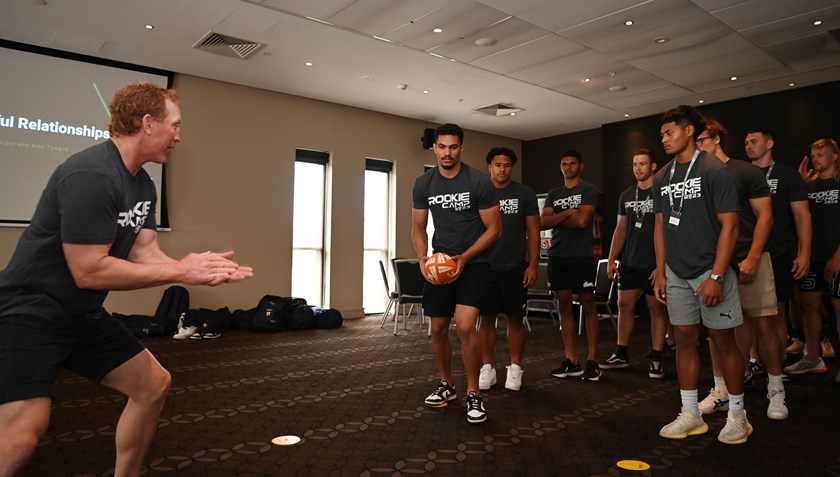
“Most of the camp is delivered by past and current players wanting to tell the next generation about the things to look out for,” Heptonstall said.
“The message is largely from players because we know that’s who they want to hear from.
“So we try and make it as relevant as we can, coming from a place of experience and trying to approach it as a celebration of opportunity while being wary of certain heightened risks.”
Former Shark, Eel and Panther Kevin Kingston, who works as the Wellbeing and Education Manager for the premiers, has been taking Penrith rookies to the camp for more than a decade.
The 183-game veteran said the two-day induction continues to have a positive impact on the wider club.
“The Rookie Camp is so essential for rugby league players because they’re coming in at such a vulnerable stage as young men with potential fame, money, successes and failures that will be experienced," Kingston told NRL.com.
“I love it because they get plucked out of their normal environment and they all taken in together - they take off their club colours and all become one rookie tribe.
“The feedback that I get from the players is that they wish they had more opportunities to hear from ex-players, they love hearing their experiences and advice.
“When they come back we do a lot of reflection about what they took away and they always go on to apply those little lessons to their life - whether that’s in a relationship, media training or financial advice which all add to a successful career.”
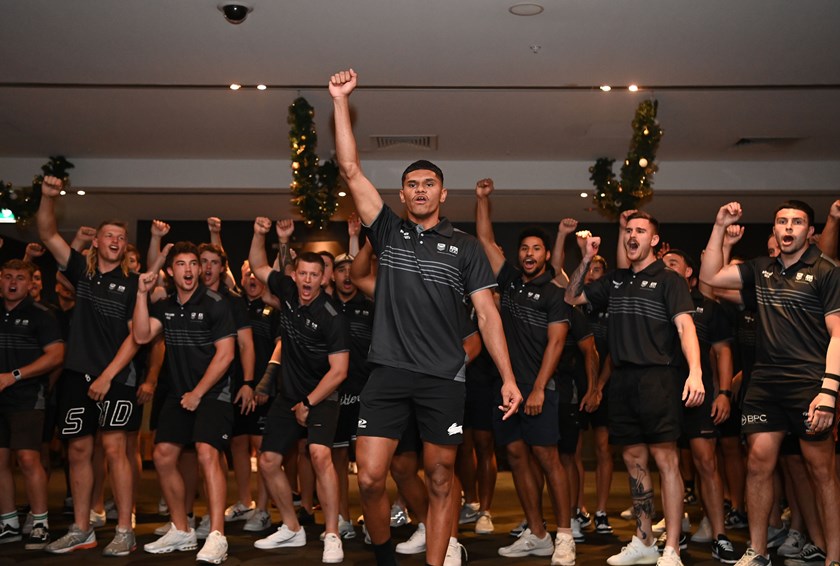
Having experienced the highs and lows of rugby league throughout a 10-year career, Kingston brings a unique perspective to his role at the Panthers.
He is adamant today's crop of NRL players are under more pressure and face greater public scrutiny than when he broke into first grade in 2005 alongside the likes of David Peachey, Brett Kimmorley and Paul Gallen at Cronulla.
“There weren't phones and social media when I was around, there wasn’t TV shows unpicking rugby league news five nights a week so there’s a lot more media pressure and external noise for players now,” said Kingston.
“There’s also more money in the game and more fame. Being able to manage that is something they’ve got to learn but there’s also more education and support, so players need to make the most of that as well.”

